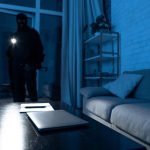By Carla Falkevitch, PHEc
We all feel stress, anxiety, fear, and loneliness during this time. The World Health Organization (WHO) is concerned about the consequences of Covid-19 and the effects on our mental health and psychological well-being.
We are unable to just go down the street to visit friends or family and staying mentally healthy can become increasingly difficult for many of us, especially students. I turned to Medical News Today to search for some best practice tips to use for coping with stressors such as anxiety and loneliness.
STRESS
First accept that stress levels will likely be higher for many at this time and that if you are trying to do school work from home, it may not be as productive as in the past. One helpful way is to keep home and school separate and create a physical space that is for work only. Set achievable goals so that a person does not become overwhelmed with completing tasks. It is also suggested to find others who share your goals. There may be people in your home or someone who also needs to do school work at home that you can connect on line with and can help you stay on track. For instance, you can plan to take breaks throughout the day together or encourage each other to get back on task if you take too much time away.
KINDNESS
Be kind and patient with yourself and those around you! It is important to maintain other healthful habits — such as eating regularly, maintaining a healthful diet, making time to connect with others, engaging in regular physical exercise, obtaining good hygiene and normal sleep habits. These are foundations for good mental health and overall wellbeing. It is also important to maintain good communication with both housemates and classmates at this time.
LONELINESS
Combat loneliness at all cost. There is a wealth of resources online for support. Go on virtual tours, watch videos online, have video dinner dates with friends, live-stream yoga or workouts, or cooking videos you can prepare a recipe along with. Reconnect with hobbies or start a new one you have been interested in. Learn some relaxation techniques on line or try some that don’t require a screen like — reading, taking a bath, gardening, listening to music, playing music, journaling, writing or arts and crafts.
COMMUNICATE
Acknowledge upsetting thoughts when they occur, and discuss them with the people around you. They are likely having them, too, and we are better together. Practice empathy and check in with one new person a week. Looking out for someone else gives you a sense of purpose. When possible use video calls they help to give us a feeling of proximity like the person is nearby.
ANXIETY
WHO officials also talked about how people may start experiencing increased levels of anxiety during this uncertain time. WHO’s Dr. Hans Kluge says that our anxieties and fears should be acknowledged, and not ignored. One factor in experiencing anxiety is the sense of of feeling out of control. Practicing simple relaxation techniques, like breathing exercises, muscle relaxation, mindfulness and meditation, have been scientifically proven to reduce anxiety and stress and help us feel more in control of your own state. We can’t always control external circumstances but we can feel in control of our personal wellbeing. Take care and love yourself!
Carla Falkevitch is a Professional Home Economist and Home Economics Teacher for Grade 9-12 Family Studies in Manitoba.






